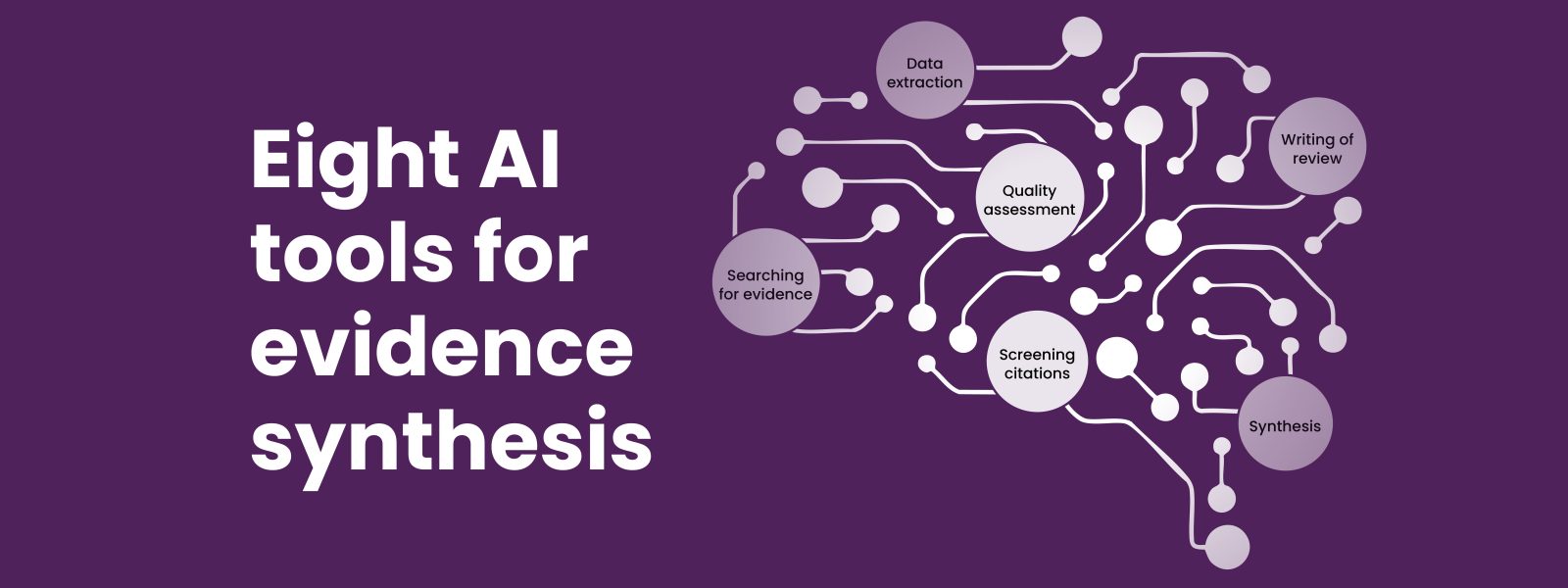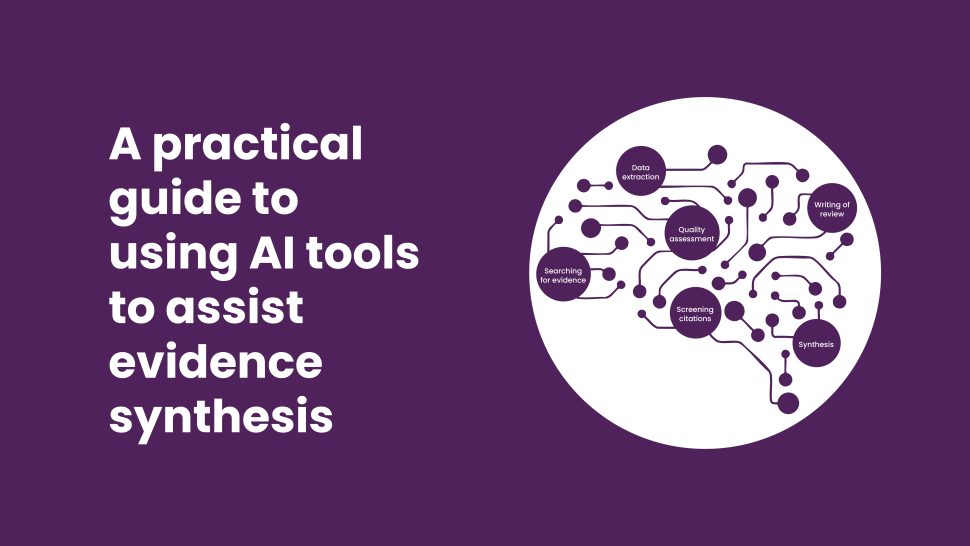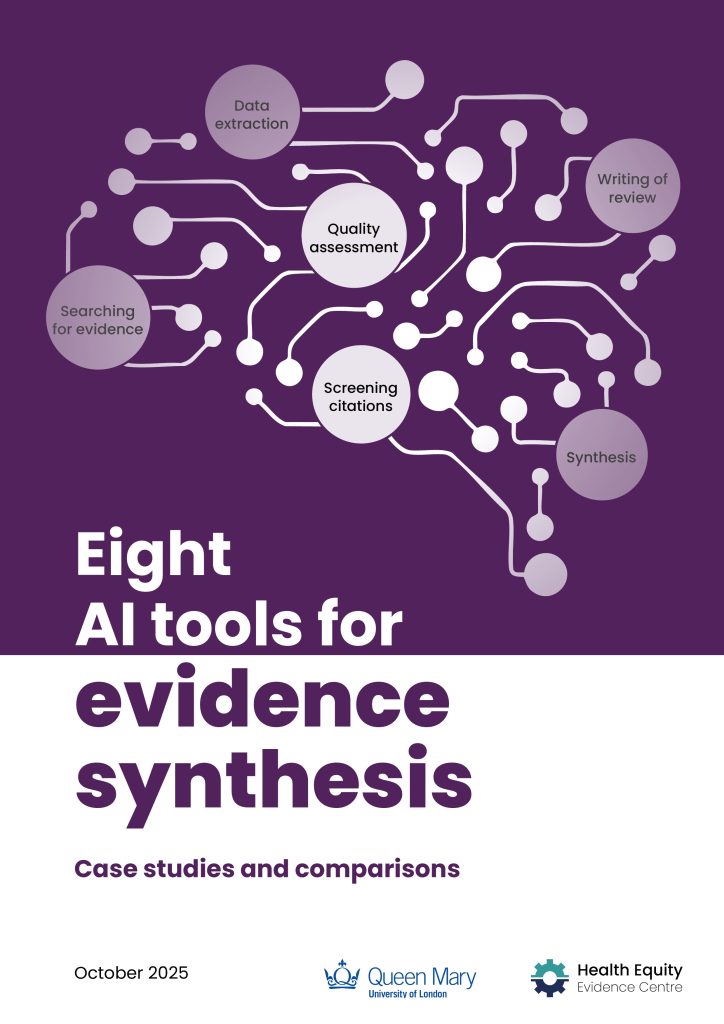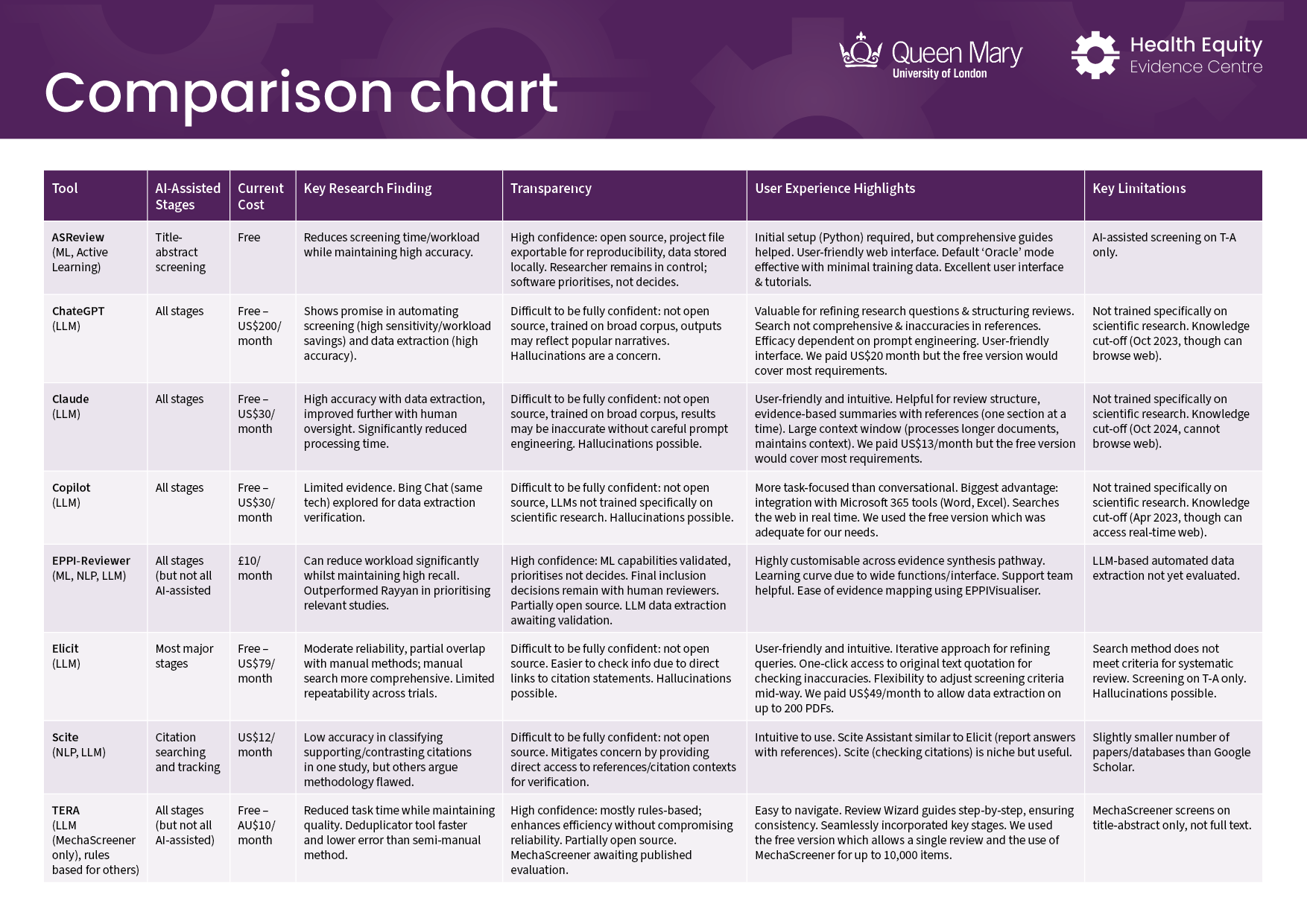Eight AI tools for evidence synthesis: Case studies and comparisons

This tool presents an independent assessment of eight AI tools designed to support evidence synthesis. Each case study summarises the tool’s capabilities, research evidence, and HEEC’s practical experience to guide researchers in selecting the most appropriate solutions for their reviews.
Artificial intelligence (AI) is transforming the way evidence synthesis is conducted—making the process faster and lighter in workload. Tasks such as title and abstract screening, data extraction, and synthesis are increasingly being supported by automation and large language models (LLMs). However, the growing number of tools and rapid evolution of AI technologies make it challenging to determine which are most appropriate for research use.
To support researchers navigating this changing landscape, the Health Equity Evidence Centre has produced this independent review of eight AI tools for evidence synthesis, each assessed for its purpose, features, supporting evidence, and practical usability.
Together, these case studies provide practical insights into how AI can be used responsibly and effectively across different stages of the evidence synthesis process.
Related resources

A practical guide to using AI tools to assist evidence synthesis
This practical guide supports researchers in using AI tools to assist with evidence synthesis while maintaining rigour and quality. Drawing on real-world case studies and research conducted by the Health Equity Evidence Centre, it provides practical advice on integrating AI responsibly across all stages of the synthesis process.

Faster, lighter, better?
Introducing two new practical resources to explain how artificial intelligence can support evidence synthesis


